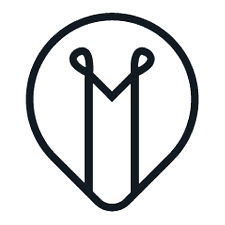
Maaklab
Makerspace of University of Applied Sciences VIVES Belgium
VIVES is a state-recognized and state-financed higher education institution. Our core business is to ensure higher education for students at bachelor level. In the education programs the university college ensures that its students contribute to the globalised world both as human beings and as professionals. VIVES University College is also active in the field of VET. They offer a broad range of post educational trainings and seminars for people in the work field. Basic principle of their trainings is closing the gap between education and the demands of the stakeholders. VIVES works closely together with the local and regional “enterprises” and organisations. Part of VIVES is Maaklab. The Maaklab is an inspiring studio where there is plenty of focus on co-creation, the development of technical competencies and innovation. It forms a challenging learning environment with a focus on training, crossover initiatives, innovative services, project management, prototyping, advice and applied research.
-
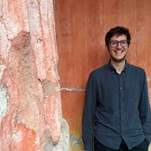
Mauro Kerckhof
mauro.kerckhof@vives.be -
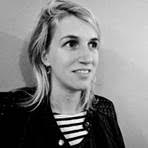
Elke Denys
elke.denys@vives.be -
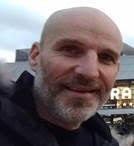
Johan Van Hevel
johan.vanhevel@vives.be -

Peter Vanbiervliet
peter.vanbiervliet@vives.be

Spes Nostra Heule
Secondary schoolBelgium
SPES NOSTRA is a secondary school offering secundary education at all levels ( BSO, TSO and ASO). SPES NOSTRA has 115 teachers and 25 staff responsable for administration and logistics. 1000 students are enrolled in SPES NOSTRA. There are 500 students following VET-education in several disciplines. In this project students (120) from the discipline 'retail' will be involved. In Spes Nostra we want to set out the appropriate signposts to guide our young people in their search for themselves and for their future. We resolutely opt for extra attention for those who are struggling at any level. We provide the necessary guardrails and prevent these young people from going off the road. If necessary, we recharge their batteries or refuel some gas. We want to prepare all our students sufficiently to be able to function in society today and tomorrow and to participate fully in social, cultural, religious, political and economic life. We do this by offering quality education.
-
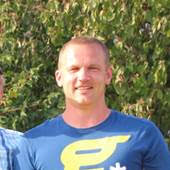
Stijn Decoene
stijn.decoene@snh.be

RHIZO
Secondary school groupBelgium
RHIZO is a group of secondary schools representing 4090 pupils and 90 staff members. RHIZO provides education in different areas (STEM, health care, general education, special needs education). In particular two schools will be involved:
- Secundaire freinetschool ‘t vier is an innovative school based on the pedagogical principles of Celestin Freinet and is based on three cornerstones: cooperative, experiential and explorative. At this moment, there are 130 pupils in the first grade, but the school will grow to a school of 450 pupils in three grades (age 12-18 years). Within secundaire freinetschool ‘tvier, there is vocational education in the field of health care and the program is based on workplace learning.
- RHIZO college Zwevegem. College Zwevegem offers several levels of secundary education to 12-16 years old. In this project the pupils following VET-education following a more technolgical program will be involved. This school counts 657 students. 35 students are enrolled in the VET-education level. In VET-education 21 teachers are involved.
-
Stijn van Steenkiste
stijn.vansteenkiste@rhizo.be -

Jorge Cottyn
jorge.cottyn@tvier.be
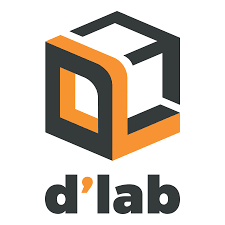
D’Lab
Fab Lab of Friesland CollegeNetherlands
Friesland College is an open educational institution with respect for all religions and cultures in society. Friesland College is involved with and listens to its students; has a passion for teaching and is innovative. Students can choose from a wide variety of courses, job opportunities, facilities and activities at Friesland College. These are provided throughout the province of Friesland by a small teaching and support staff of 1000 persons. They are active in several locations, the largest two being located in Leeuwarden and Heerenveen which are in Friesland, the north of The Netherlands.
D’LAB is part of Friesland College and closely cooperates with the world of work. Its mission is, together with FC students, to solve innovation issues that affect the region. The lab is set up with 3D printers, scanners, laser printers and other modern equipment. http://www.dlab.nl FC’s D’LAB is an official FAB LAB, accredited by FAB LAB Benelux. "Fab Lab" is an abbreviation for Fabrication Laboratory, a group of off-the-shelf, industrial-grade fabrication and electronics tools, wrapped in open-source software and programs. Fab Labs give users around the world the ability to locally conceptualize, design, develop, fabricate, and test almost anything.
-

Frank Kroondijk
f.kroondijk@fcroc.nl
Learning Hub Friesland Foundation
Netherlands
Internationalisation is a crucial response to the demands to develop graduates who possess adequate skills, knowledge and attributes to engage and perform in a globalised and intercultural world. By learning international competences, students are better qualified for an increasingly global labour market. This does not only benefit students who want to go abroad. In their own country too, students will have to deal with contexts in which international knowledge and skills are needed. Learning Hub Friesland supports all activities that are aimed at bringing together schools, students and teachers with different views, cultures and educational systems in order to better understand and appreciate one another and enrich one’s own culture.
-
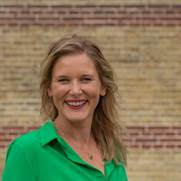
Erna van der Werff
erna@learninghubfriesland.nl -

Simon Tubb
simon@learninghubfriesland.nl

FabLab Cuenca
Spain
FabLab Cuenca is a private initiative and a space for innovation open to citizenship. We are a digital fabrication facility providing the comunity to access a wide range of fabrication technologies that allow them to turn their ideas into new prototypes and products. Our main activity is educational, we are dedicated to teach digital manufacturing through free software, 3D printing and new techniques of digital creation. We work with different groups, collaborating with enterprises, creatives, schools, local government, private institutions and ONGs. One of our main target groups in Fab Lab Cuenca is people with risk of exclusion, developing always specific content to create equality, inclusion and encourage the community to find unique solutions to unique problems.
-

Delia Millan
fablabcuenca@gmail.com -
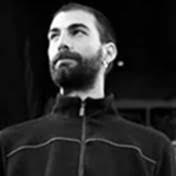
Mickael Pitarresi
fabricadoencuenca@gmail.com
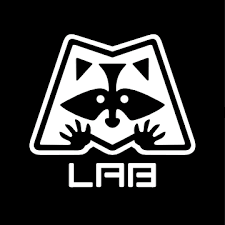
M-Lab Vilnius
Lithuania
The FabLab in School and Digital making as an educational model in Lithuanian schools had been introduced and piloted starting from 2015. Project was started by TEA and co-founders of M-Lab, with the help and consulting of colleagues from the FabLab Benelux network and mini FabLab concept creator Bart Bakker (www.minifablab.nl). Project for Schools initially consisted of mobile or pop-up mini FabLab unit (set of digital fabrication equipment and electronics lab) that had been brought to different schools, where a crew of skilled instructors had been teaching students and teachers for the week or two weeks period. During the process of designing and prototyping within the FabLab environment, various interdisciplinary skills could be applied and different themes/topics for maker education content in Schools were explored and tested. Starting from 2016, M-Lab mobile projects and bootcamps had been already implemented with different age and target (including youth risk) groups, in over 34 schools and 11 cities or small towns throughout Lithuania.
-
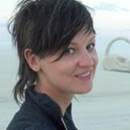
Ieva Marija Dautartaite
ieva@meskenai.lt -
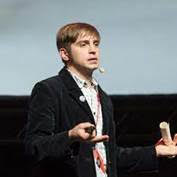
Giedrius Kavaliauskas
giedrius@meskenai.lt